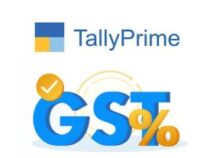Description
Course Name: Certificate in Investment Advisor
Course Id: CIA/Q0101.
Eligibility: 10+2 (Higher Secondary) or equivalent is required.
Objective: The Certificate in Investment Advisor course is designed for aspiring financial planners, wealth managers, bankers, and professionals who wish to build a career in the investment advisory domain. The course equips learners to understand client needs, assess financial goals, and recommend appropriate investment products while adhering to ethical and regulatory standards.
Duration: Three Months.






Debit/Credit Card, Wallet, Paytm, Net Banking, UPI, or Google Pay.



• A soft copy (scanned) of your certificate via email within 7 days of examination.
• A hard copy (original with official seal and signature) sent to your address within 45 day of declaration of result.

Online Examination Detail:
Duration- 60 minutes.
No. of Questions- 30. (Multiple Choice Questions).
Maximum Marks- 100, Passing Marks- 40%.
There is no negative marking in this module.
| Marking System: | ||||||
| S.No. | No. of Questions | Marks Each Question | Total Marks | |||
| 1 | 10 | 5 | 50 | |||
| 2 | 5 | 4 | 20 | |||
| 3 | 5 | 3 | 15 | |||
| 4 | 5 | 2 | 10 | |||
| 5 | 5 | 1 | 5 | |||
| 30 | 100 | |||||
| How Students will be Graded: | ||||||
| S.No. | Marks | Grade | ||||
| 1 | 91-100 | O (Outstanding) | ||||
| 2 | 81-90 | A+ (Excellent) | ||||
| 3 | 71-80 | A (Very Good) | ||||
| 4 | 61-70 | B (Good) | ||||
| 5 | 51-60 | C (Average) | ||||
| 6 | 40-50 | P (Pass) | ||||
| 7 | 0-40 | F (Fail) | ||||







Syllabus:
Module 1: Fundamentals of Investment Advisory: Role and responsibilities of an investment advisor, Types of investment advisors (RIA, distributor), Overview of Indian financial markets, Understanding investor psychology and behavior, Types of investors and their needs, Difference between advisory and distribution, Key regulatory bodies (SEBI, RBI, AMFI), Importance of ethics and fiduciary duty, Risks in investment advisory, Overview of advisory business models.
Module 2: Financial Planning and Goal Setting: Identifying client goals (short-term, mid-term, long-term), Risk profiling and suitability assessment, Income, expenditure and budgeting analysis, Emergency fund planning, Retirement planning and pension products, Children’s education and marriage planning, Tax planning through investments, Health and life insurance review, Creating a financial plan, Reviewing and updating plans periodically.
Module 3: Investment Products and Asset Classes: Equity and equity mutual funds, Debt instruments (bonds, debentures, fixed income), Mutual funds and ETFs, Alternative investments (REITs, AIFs, PMS), Insurance products as investment options, Derivatives and structured products (basic overview), Gold and commodities, Real estate as an investment, Global investment opportunities, Portfolio diversification strategies.
Module 4: Investment Advisory Process: Client onboarding and documentation, KYC, CKYC and risk profiling, Preparation of Investment Policy Statement (IPS), Creating customized investment portfolios, Tools for portfolio allocation and rebalancing, Tracking portfolio performance, Portfolio review and rebalancing methods, Reporting and disclosure standards, Addressing client complaints, Recordkeeping and data management.
Module 5: Regulations and Compliance: SEBI (Investment Advisers) Regulations, 2013, Registration and qualification requirements, Code of conduct for investment advisors, Risk profiling and suitability standards, Fee structure guidelines and disclosures, Documentation and audit requirements, Avoiding conflict of interest, Insider trading and fair dealing norms, Legal liability and penalties, Recent amendments and circulars.
Module 6: Client Communication and Business Development: Building rapport and trust with clients, Communicating recommendations effectively, Explaining risks, returns, and costs, Soft skills and interpersonal communication, Handling client objections and queries, Using digital platforms for advisory services, Client retention and referral generation, Conducting investor education programs, Branding and marketing your advisory practice, Career growth and certification options.
✅ Career Opportunities After Certificate in Investment Advisor
🔹 1. Investment Advisor (Independent / SEBI-Registered)
-
Workplace: Freelance, advisory firms, fintech platforms
-
Role: Provide personalized financial planning and investment strategies
-
💰 Earnings: ₹25,000 – ₹1,00,000+/month (based on clients and AUM)
🔹 2. Financial Consultant / Wealth Advisor
-
Workplace: Banks, NBFCs, wealth management firms
-
Role: Suggest mutual funds, stocks, bonds, and tax-saving investments
-
💰 Salary Range: ₹30,000 – ₹75,000/month + performance bonuses
🔹 3. Client Relationship Manager – Investments
-
Workplace: Brokerage firms, AMCs, fintech startups
-
Role: Handle investment portfolios, answer client queries, generate reports
-
💰 Salary Range: ₹25,000 – ₹60,000/month
🔹 4. Portfolio Manager (Junior Level)
-
Workplace: Investment advisory firms, PMS providers
-
Role: Analyze financial instruments and construct model portfolios
-
💰 Salary Range: ₹40,000 – ₹1,00,000+/month
🔹 5. Investment Sales Executive / Advisor Assistant
-
Workplace: AMCs, stock brokers, fintech apps
-
Role: Assist in onboarding, product explanation, and upselling
-
💰 Salary Range: ₹20,000 – ₹45,000/month
📈 Income Overview in India
| Job Role | Monthly Income Range |
|---|---|
| Investment Advisor (Independent) | ₹25,000 – ₹1,00,000+ |
| Financial Consultant | ₹30,000 – ₹75,000 |
| Relationship Manager | ₹25,000 – ₹60,000 |
| Portfolio Manager | ₹40,000 – ₹1,00,000+ |
| Sales/Advisor Assistant | ₹20,000 – ₹45,000 |






Reviews
There are no reviews yet.